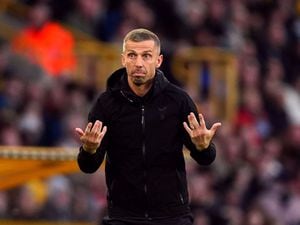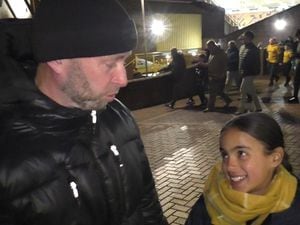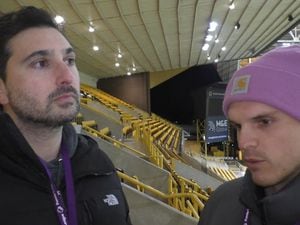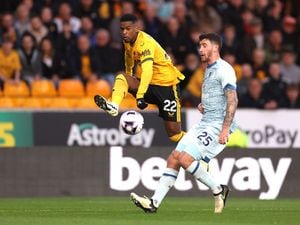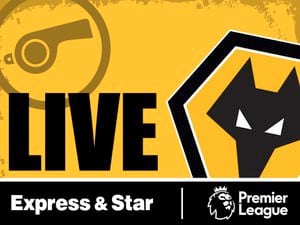The Big Interview - Tommy Hearns
He was the driving force from the Motor City - but Tommy Hearns is and always will be 'the Hitman.'
That nickname was well and truly earned through his storied career, where success and failure often came down to who had the most meat in his gloves.
And, as the moniker suggests, if he pinged you with so much as a jab from that big right hand, there was every chance your days were numbered, writes Craig Birch.
It was punch power that travelled up six weights, made him the first man to win world titles in four different divisions and prolonged his glittering pro career to nearly 30 years.
He was one of the famous 'Four Kings' in the 1980s, coldcocking Roberto Duran before the best three rounds of boxing ever with Marvin Hagler.
He fought 'Sugar' Ray Leonard twice and both openly conceded then, and for years to come, that Hearns was robbed the second time.
He brought big time boxing back to Detroit in his native United States, who hadn't been so proud of one of their own fighters since the days of Joe Louis.
Like 'the Brown Bomber,' he was an adopted son of the city. He was born in Grand Junction, Tennessee, before his family moved when he was five years old.
All was not well at home after that, his parents divorced and young Tommy was a little boy lost. A shy child but keen to meet new people, he followed the children in his area to the Kronk Gym.
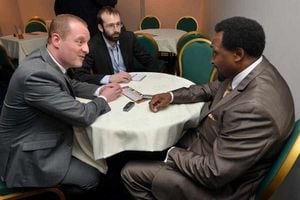
He recalls: "I started boxing when I was nine years old, a lot of the kids in my neighbourhood went along to our local club and, one day, I asked to go with them.
"As soon as I got in there, I was hooked. Everytime you walked into that gym, there was always a challenge from someone.
"There were guys sitting around that would call you out for a fight. And that was just for sparring!
"I never turned down any of them and a lot were surprised by what they were getting in with. I fought them all. Even then, I had something."
Trainer Emanuel Steward became a surrogate parent and would stand alongside him until his death in 2012. They never stopped being close.
Hearns wouldn't turn pro until the time was absolutely right - he had 163 amateur bouts as an uncharacteristic tip-tap light welter.
He finished on a high, winning National Amateur Athletic Union and Golden Gloves titles in the same year he first laced on a paid glove, 1977.
A step up to welter came with the turn, but Steward was confident it wouldn't hurt him. With the way the legendary coach had got him punching, the pain was to be felt by the other corner.
His first 17 opponents fell by way of TKO and only two men had ever been the distance with him by the time he was given a shot at the WBA world title in fight 29.
It was still relatively early in his pro career but this was it - the chance to become the best and a hometown hero in Detroit's Joe Louis Arena.
Champion Jose 'Pipino' Cuevas was a fellow heavy-hitter and many wondered if he was ever going to relinquish his crown, after 11 straight defences.
But a punch heard around the world saw Cuevas' legs crumble under the weight of a right hook, with less than two rounds gone. It struck fear into the hearts of his rivals. Hearns had arrived.
He said: "Emanuel Steward turned me pro and he was the best trainer any man ever had, he taught me everything I know about boxing and about life. He was like a father to me.
"I was always a tall, lanky fighter and he taught me how to keep a man at distance, to use my long reach, so I get the time to do what I wanted to do.
"With my style of fighting, sometimes it's hard to predict what I am going to do. My left jab was so strong that I didn't have to be an inside fighter.
"Emmanuel was a tactical man, he checked out everything and made sure I was in perfect condition every time I was there. He was just straight up boxing.
"For a big fight, there would be seven weeks hard training and we would spar eight to 10 rounds a day. I learned so much, like the things you have to watch out for.
"I was winning by knockout almost every time, but it didn't really surprise me. I had the punch, but I was under-estimated because I was skinny.
"They figured they could take advantage of me and that played into my hands in the early part of my career.
"Winning a world title is what every fighter who ever turns professional dreams about and, when I got my shot, I knew it could really change my life.
"Everybody feared Cuevas, at the time, but I was that determined to take the opportunity I wasn't scared at all.
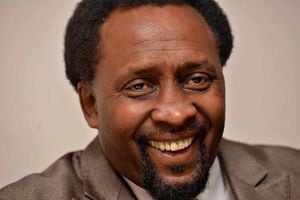
"For that fight to take place in Detroit was a big thing for me. We were in the Joe Louis Arena, where a boxer had become that popular they named the stadium after him!
"It was tough for any fighter from the city to try and follow him, so it was very important for me to go out there and do Joe proud. He was my hero.
"I got a good shot in the second round to end the fight and I was never that skinny kid again. I was the one that people were afraid of.
"Ring Magazine voted me Fighter of the Year for 1980 and that was a big surprise to me. I had suddenly become so popular."
Three successive title defences followed, before it came time to unify some belts. Again, there was a champion there that would take some beating.
Leonard was back in control of the WBC welter strap that he had lost and regained from Duran and considered Hearns the next pretender.
Another feud for the ages began in 1981, for the then-largest purse in boxing history, and was as staggeringly brutal as expected.
At the end of the 12th round, Hearns had him at his mercy, ahead on the cards with Leonard's left eye swollen shut, hiding the damage of the detached retina which later forced his retirement.
But he had completely run out of gas, evidenced when he was put through the ropes towards the end of the 13th. Only the bell saved him from that one.
Leonard smelled blood and used his last ounce of energy to trap him in the ropes with an overhand right and let his hands go. Referee Davey Pearl stepped in before the fight could end.
Hearns said: "You don't have to tell me what sensational a fight that was - I was in there! I was the slight favourite and I did feel confident.
"I really wanted to face 'Sugar' Ray Leonard in Detroit, but we went to Las Vegas and I have to admit I wasn't really prepared for it.
"Physically, I was ready but I wasn't right mentally. I just wasn't in the same mindset that I normally was. By the time I got in there, my plan was to outbox him.
"I wanted to show him that I had skill as well as a punch and he did come over to me after and say 'you can fight real good.' That meant a lot to me.
"We made magic that night, we helped each other be great. I lost that night, but we would meet again. But he won fair and square that time."
Leonard was supposed to hang up his gloves, due to injury, so Hearns abandoned all thoughts of a rematch.
He was always of the belief his power could travel up the higher weights, so he moved to light middle and targeted their WBC boss Wilfred Benitez.
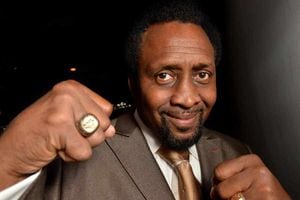
When they stepped through the ropes, Hearns again found something he couldn't smash through, but he possessed enough skill, speed and, this time, endurance to get the job done.
He went the full 15 rounds and widely outpointed the legendary Puerto Rican, showing there was more to him than just a dig.
He said: "Wilfred had one of these styles that made it a difficult night for anyone, but I was also really surprised by the strength he had.
"I was trying to box him but he moved pretty good, too, and he could take a punch. He made it hard.
"That was the first time I ever had to go 15 rounds, which is a bit more difficult. Those last three can really tire you out.
"It was particularly hard when you sit on your stool at the end of the 12th, thinking of what's left to go. I was usually about ready to throw up!
"At that stage, you might not have a whole lot left and that's when your man can surprise you. It happened against 'Sugar' Ray but, fortunately for me, not here."
There was another man who had travelled up from welter with him while Hearns was bossing the light middle division - Roberto Duran.
A former conqueror of Leonard, he also possessed the tools capable of taking on heavier men, having long been dubbed 'Hands of Stone.'
They met in 1984 for a fight which, at any weight, was not expected to go the distance. Both were the kill or be killed type.
Hearns had been through this all before with Cuevas and it went the same way, a right hook leaving Duran face down. And it won him the Ring Magazine's Fighter of the Year award again.
He said: "I didn't know Duran, but he really tried to take the fight to me before it even happened. He tried so hard to make you think he was tough.
"He was, for sure, but he wanted to make me fear him before we got in there. Those were things I thought about, but I also knew what I could do.
"When the bell rings, all of that went out of the window, it was down to business. I saw the chance to punch and put my fist right on his chin.
"But he was a great fighter and I still respect him. I never judged him on the basis of that night, with the career he's had."
With Duran defeated and 'Sugar' Ray gone, there was one man left in the Hearns mould who he had yet to fight. And that meant Marvin Hagler.
That meant another shift to middleweight to take on the 'Marvelous' one in 1985, to decide who would become boxing's superstar.
The fight would last for less than nine minutes, which had more action crammed into them than any three round contest.
Like with Leonard, Hearns had flew out of the traps and made it his fight to lose. And he did exactly last. Another bitter twist in the tale was to follow.
He threw the kitchen sink at Hagler, opening a large cut over his nose that also nearly forced a stoppage, to the point he broke his hand with less than a round gone.
He switched tactics and fended Hagler off with the jab, but it only proved a stop gap. Suddenly, he was in trouble.
The ropes again proved his enemy and gave Hagler enough time to detonate a right hand that completely floored him. Stunned, he answered the count to no avail.
Hearns said: "I still don't like being reminded about Hagler, every time I hear about it I just want us to fight again. He had a hard head, no wonder he was bald!
"It was one of the shortest yet most exciting fight most people had ever seen, but it was three rounds I just want to forget.
"In my opinion, both of us had drained ourselves to make the weight, But, as soon as the bell rung, we both just ran out of the corner.
"I was thinking to myself 'look at this fool! What's wrong with him? Something has made him mad.' I knew it wouldn't be long before someone was out of there.
"I punched him again and again as hard as I could, then just wondered how on earth he was taking these shots. I hit him with everything I had, it was unreal. He was a freak.
"He just kept coming, I am not a quitter but I think I lost heart. All I could think to do was keep popping him as he came forward.
"Then he got me. It's only ever takes one punch to change things and that's what happened to me. There's always that danger."
That completed his trio against the rest of 'the Four Kings.' Despite the numerous calls for a rematch with Hagler, he would only cross swords with a returning Leonard.
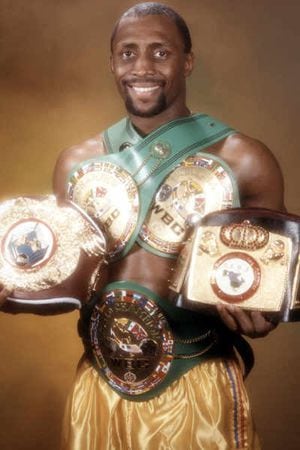
He went back to light middle and reclaimed the WBC title with an eighth round stoppage of Mark Medal, before switching weights again.
This time, he jumped all the way up to light heavy, with Brit Dennis Andries regarded as cannon fodder. He was tough and strong, but skill and speed would prove his undoing.
The one thing 'the Hackney Rock' was hard to shift, as Hearns discovered after knocking him down six times. It took 10 rounds before he could rip the division's WBC belt from him.
Before 1987 was out, Hearns got his chance at history. Victory over Juan Domingo Roldan for the organisation's middleweight strap would finally make him a four-weight world champion.
Nothing was going to stop him etching his name into boxing folklore and Domingo Roldan folded in four. He could have retired there and then, with his legend established.
Hearns said: "I had the size over everybody at light middle, so it was always in my interest to box at that weight. I believed I could hold own at middleweight, too, which I proved. I think the welterweight division was better than light middle, at the time.
"The most comfortable I felt was at light heavy. I had a good run there. I won my first world title at light heavy against Dennis Andries in 1987, I felt really strong and bashed him around.
"But he wasn't giving up without a fight, he just kept on coming. I had to take my hat off to him, he was a tough guy. He made me work for it that night.
"That gave me even more confidence in my power when I dropped down again, although I wasn't that keen on fighting Domingo Roldan, at first.
"He was another big puncher, he's still the only man to put Hagler down and there was plenty that could go wrong.
"But that was my chance of history, to become the first boxer to win world titles at four different weights. That put me up there with Joe Louis or anybody.
"I remember he threw a left hook from nowhere that hit me upside my head and I was seeing stars. I had to stay away from him and use my range.
"I was a very happy man, to do something no man had been able to do. It was more for the people who had supported me. It felt like what I owed them."
After boxing on, the sky was the limit as to how many weights he could conquer before he hung up his gloves. But he was to leave the middleweight division on a huge downer.
No one had done a number on him quite like Iran Barkley did in 1988. He cut him badly and floored him twice in the third round, before the man in the middle decided enough was enough.
It appeared to be the beginning of the end, until Leonard came calling again. A rematch nine years in the making, it breathed life into both of the veteran's careers.
It was almost a carbon copy of the first fight. In fact, the tide looked to be more convincingly against Leonard, who was knocked down in the third and 11th round.
It went the full 12, with the result considered little more than a formality. To the astonishment and annoyance of everyone, who had come to see a clear winner, the bout was declared a draw.
Hearns said: "I felt crushed, I knew I should have won and they took it away from me. When they called it a draw, I was like 'man, what fight were you all looking at?'
"I had always agreed Ray won the first fight fair and square and, to be fair to him, we talked and he agreed I won the second time. I consider us 1-1.
"It was a personal thing and that meant a lot, because I had been robbed. We were friends, so I respected to his opinion.
"He was not only a great fighter but a great man, too. I really wanted us to settle the score for a third time, but it wasn't to be."
The days of dominance came closer to an end for Hearns after that. In the Indian summer of his career, he relied more on the basics and his experience than the long kiss goodnight.
It was still enough to take him to a world title in a fifth weight class, taking the WBO super middle crown from Michael Olajide at the start of the 1990s.
His last great performance saw him return to light heavy to take on long-standing WBA boss Virgil Hill in 1991.
A complete underdog, Hearns went back to his old amateur roots and completely outboxed the champion, making his 11th defence, to take his title on points.
Barkley came out of the woodwork to become the only fighter to beat Hearns twice in 1992, this time over-the-distance on a split decision.
Age: 56
From: Detroit, Michigan
Fights: 67
Wins: 61 (48 KOs)
Losses: 5 (4 KOs)
Draws: 1
Hearns said: "Despite all of the praise I got for beating Virgil Hill, I didn't think it was one of my greatest fights, even in just the light heavy division.
"I always rated my performance against Dennis Andries as better. Virgil was a slick boxer, but I was all wrong for him. I just used my long jab and that was almost enough to beat him already.
"Barkley seemed to have my number and dined out forever on being the only man to do the double over me. I still don't know how he did it."
As he always did, Hearns vowed to bounce back but, from here, the big fights for the major titles were over.
He won his next eight bouts, after debuting at cruiser, picking up two more belts in the little-regarded WBF and IBO crowns.
The latter came in his one and only fight in England. He picked up the IBO strap with a 12-round points win over fellow American Nate Miller at the Manchester Arena in 1999.
He said: "That was a very enjoyable night for me, I was a little hesitant about coming to Manchester but it worked out just fine.
"I took care of business, I was 40 years old by then and had only ever boxed outside of America once, when I went over to the Bahamas in 1981.
"I think it's something every fighter should experience in their career, I was given that opportunity and I was glad I took it.
"I am very proud of what I accomplished in the ring, I never really retired and I fought a few times after that, but that was my last great night.
"I lost the title to Uriah Grant at the Joe Louis Arena the following year and left boxing for five years. I only ever fought again twice.
"It's been eight years since I last got in the ring now and it's left a big void in my life. Even today, I still keep myself in shape and consider myself able to fight again."
No one will ever forget the power of Tommy Hearns. Whenever you met him, he always had a puncher's chance. He will be remembered for that.
Tommy Hearns was talking to Craig Birch during a sportsman's dinner, hosted by Scott Murray, at Bar Sport's Premier Suite in Cannock Town Centre.

